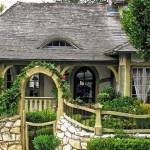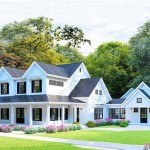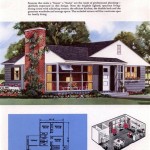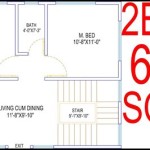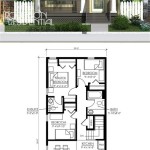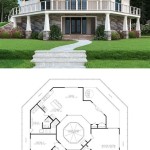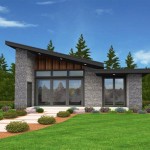Beach cottage house plans are detailed blueprints that guide the construction of charming and cozy homes specifically designed for coastal living. These plans incorporate architectural features and design elements that cater to the unique characteristics and demands of beach environments.
Whether it’s a modest retreat for weekend getaways or a spacious family residence, beach cottage house plans offer a wide range of options to meet individual preferences and lifestyles. From quaint bungalows with wrap-around porches and ocean views to sprawling multi-bedroom homes with decks overlooking the shore, there is a plan to suit every taste and need.
In the following sections, we will delve into the key considerations, design aspects, and popular features of beach cottage house plans, providing insights into creating a dream home by the sea.
Beach cottage house plans prioritize certain key considerations and design aspects to ensure a harmonious blend with the coastal environment and lifestyle.
- Elevated foundations
- Wrap-around porches
- Abundant natural light
- Open floor plans
- Durable materials
- Coastal-inspired decor
- Energy efficiency
- Outdoor living spaces
- Hurricane resistance
These elements come together to create comfortable, functional, and visually appealing beach cottage homes that embrace the unique charms of seaside living.
Elevated foundations
Elevated foundations are a crucial aspect of beach cottage house plans, providing several advantages for homes built in coastal areas.
- Protection from flooding
Coastal areas are prone to flooding, especially during storms and hurricanes. Elevating the foundation raises the house above the potential flood level, protecting it from water damage and structural issues.
- Improved ventilation
The space beneath an elevated foundation allows for better air circulation, reducing moisture and humidity levels within the house. This helps prevent mold and mildew growth, creating a healthier and more comfortable living environment.
- Enhanced views
Elevating the house provides panoramic views of the surrounding landscape, including the ocean, beach, and dunes. This can significantly enhance the aesthetic appeal and enjoyment of the property.
- Increased structural stability
In areas with sandy or unstable soil, elevated foundations provide additional support and stability to the house. They distribute the weight of the structure more evenly, reducing the risk of settling or collapse.
Overall, elevated foundations are an essential feature of beach cottage house plans, ensuring the safety, comfort, and longevity of homes built in coastal environments.
Wrap-around porches
Wrap-around porches are a defining feature of many beach cottage house plans, offering a seamless transition between indoor and outdoor living while providing a variety of benefits:
Extended living space
Wrap-around porches significantly expand the usable living area of a beach cottage, creating additional space for relaxation, dining, and entertaining. They provide a sheltered and comfortable outdoor sanctuary where homeowners can enjoy the fresh air, stunning views, and coastal breezes.
Enhanced indoor-outdoor flow
Porches that wrap around the house blur the boundaries between interior and exterior spaces, allowing for easy access to the outdoors from multiple rooms. This seamless flow promotes a relaxed and casual lifestyle, encouraging residents to embrace the outdoor environment.
Protection from the elements
Wrap-around porches provide shade from the sun’s harsh rays, reducing the need for artificial cooling and creating comfortable outdoor spaces even during the hottest summer months. They also offer shelter from rain and wind, allowing homeowners to enjoy the outdoors regardless of the weather conditions.
Increased curb appeal
Wrap-around porches add significant visual interest and charm to beach cottages, enhancing their curb appeal and overall aesthetic value. They create a welcoming and inviting ambiance, making the home stand out in its surroundings.
Abundant natural light
Beach cottage house plans prioritize abundant natural light to create bright, airy, and inviting living spaces. This is achieved through several key design elements:
Large windows and glass doors
Expansive windows and glass doors are strategically placed throughout the house to maximize natural light intake. They allow sunlight to flood the interior, reducing the need for artificial lighting during the day and creating a sense of spaciousness and openness.
Open floor plans
Open floor plans eliminate unnecessary walls and partitions, allowing natural light to penetrate deep into the house. This design approach creates a continuous flow of light from one room to another, resulting in a and welcoming atmosphere.
Skylights and sun tunnels
Skylights and sun tunnels are installed in strategic locations to bring natural light into areas that may not have direct access to windows or doors. These features allow sunlight to reach interior rooms, such as hallways, bathrooms, and closets, reducing the reliance on artificial lighting.
Light-colored interiors
Beach cottage house plans often incorporate light-colored interiors, such as white or beige walls and light-colored furnishings. These surfaces reflect natural light, further enhancing the brightness and spaciousness of the living spaces.
Abundant natural light in beach cottage house plans not only creates a more pleasant and inviting living environment but also offers several practical benefits. Natural light reduces the need for artificial lighting, saving energy and lowering utility bills. It also improves mood, promotes well-being, and provides a connection to the outdoors, enhancing the overall quality of life for the occupants.
Open floor plans
Open floor plans are a defining characteristic of beach cottage house plans, creating a spacious, airy, and light-filled living environment. Here’s a detailed explanation of how open floor plans are incorporated into beach cottage designs:
Removal of unnecessary walls
Open floor plans are achieved by removing unnecessary walls and partitions, opening up the interior space and allowing for a seamless flow of light and air. This approach eliminates the traditional separation between rooms, creating a more spacious and cohesive living area.
Integration of living spaces
In beach cottage house plans, open floor plans typically integrate the living room, dining room, and kitchen into one large, open space. This fosters a sense of togetherness and encourages interaction among family members and guests. It also allows for multiple activities to occur simultaneously, such as cooking, dining, and socializing.
Emphasis on natural light
Open floor plans complement the abundance of natural light in beach cottage house plans. By removing walls and obstructions, sunlight can penetrate deep into the interior, creating a bright and welcoming atmosphere. This reduces the need for artificial lighting during the day, saving energy and enhancing the overall ambiance of the home.
Improved functionality
Open floor plans offer improved functionality compared to traditional compartmentalized layouts. The absence of walls allows for more flexibility in furniture placement and space utilization. It also facilitates easy movement throughout the house, making it ideal for families with children or individuals with mobility issues.
Overall, open floor plans are a key element of beach cottage house plans, contributing to the spaciousness, brightness, and functionality of these charming coastal homes. They create a casual and inviting living environment that embraces the indoor-outdoor lifestyle and maximizes the enjoyment of the surrounding natural beauty.
Durable materials
Pressure-treated lumber
Pressure-treated lumber undergoes a process where preservatives are forced into the wood under high pressure, making it highly resistant to rot, decay, and insect damage. This type of lumber is commonly used for decks, porches, and exterior framing in beach cottage house plans due to its ability to withstand harsh coastal conditions, including exposure to saltwater, moisture, and fluctuating temperatures.
Fiber cement siding
Fiber cement siding is a low-maintenance and durable alternative to traditional wood siding. It is made from a mixture of cement, sand, and cellulose fibers, providing excellent resistance to moisture, fire, and pests. Fiber cement siding does not rot, warp, or crack easily, making it an ideal choice for beach cottage house plans in areas prone to high winds, heavy rain, and salt spray.
Vinyl windows and doors
Vinyl windows and doors offer exceptional durability and energy efficiency for beach cottage house plans. Vinyl is a non-porous material that resists moisture, rot, and corrosion, making it suitable for coastal environments. Vinyl windows and doors are also low-maintenance, requiring minimal painting or staining, and they can withstand strong winds and impact from airborne debris.
Metal roofing
Metal roofing is a long-lasting and low-maintenance option for beach cottage house plans. It is made from materials such as aluminum, steel, or copper, which are highly resistant to rust, corrosion, and fire. Metal roofing can withstand high winds and heavy rain, and it reflects sunlight, helping to keep the interior of the house cooler during the summer months.
The use of durable materials in beach cottage house plans ensures the longevity and resilience of these homes in challenging coastal environments. These materials provide excellent protection against the elements, reducing maintenance costs and increasing the overall lifespan of the property.
Coastal-inspired decor
Coastal-inspired decor is an integral part of beach cottage house plans, as it evokes the relaxed and inviting ambiance of seaside living. This style incorporates elements that draw inspiration from the natural beauty of the coastal environment, creating a harmonious connection between the home and its surroundings.
- Natural materials
Coastal-inspired decor favors the use of natural materials such as wood, stone, and jute. These materials bring a sense of warmth and organic texture to the space, reflecting the rugged yet serene nature of the beach. Wood is often used for flooring, furniture, and wall paneling, while stone and jute can be incorporated into countertops, backsplashes, and rugs.
- Neutral color palette
Neutral colors form the foundation of coastal-inspired decor, creating a calming and airy atmosphere. Shades of white, beige, and gray are commonly used, as they evoke the colors of sand, driftwood, and seafoam. These neutral tones provide a backdrop for pops of color inspired by the ocean, such as blues, greens, and corals.
- Coastal patterns and motifs
Coastal patterns and motifs add a touch of whimsy and character to beach cottage interiors. These patterns often draw inspiration from marine life, such as seashells, starfish, and coral reefs. They can be incorporated into textiles, wallpaper, and artwork, creating a playful and inviting ambiance.
- Vintage and weathered accents
Vintage and weathered accents lend a touch of nostalgia and authenticity to coastal-inspired decor. Items such as driftwood pieces, antiquenets, and old maps can be displayed as decorative elements, evoking the charm and history of the seaside. Weathered wood furniture and distressed finishes add to the relaxed and casual aesthetic of beach cottage interiors.
Coastal-inspired decor is more than just an aesthetic choice; it is a reflection of the laid-back and welcoming lifestyle associated with beach living. By incorporating natural materials, neutral colors, coastal patterns, and vintage accents, beach cottage house plans create a space that embodies the tranquility and beauty of the seaside environment.
Energy efficiency
Insulation
Proper insulation is crucial for energy efficiency in beach cottage house plans. Adequate insulation in the walls, roof, and floors helps maintain a comfortable indoor temperature by preventing heat loss during the winter and heat gain during the summer. This reduces the reliance on heating and cooling systems, resulting in lower energy consumption and utility bills.
Energy-efficient appliances and lighting
Choosing energy-efficient appliances and lighting fixtures can significantly contribute to the overall energy efficiency of a beach cottage. Look for appliances with the ENERGY STAR label, which indicates that they meet strict energy-saving standards. LED and CFL bulbs are also more energy-efficient than traditional incandescent bulbs and last longer, reducing the frequency of replacements.
Solar panels
Installing solar panels is an excellent way to harness renewable energy and reduce electricity costs in beach cottage house plans. Solar panels convert sunlight into electricity, which can be used to power the home’s appliances, lighting, and heating/cooling systems. By utilizing solar energy, homeowners can significantly reduce their reliance on the grid and lower their carbon footprint.
Passive solar design
Passive solar design principles can be incorporated into beach cottage house plans to maximize energy efficiency. This involves strategically positioning windows, overhangs, and thermal mass to capture and retain heat from the sun during the winter and minimize heat gain during the summer. By utilizing natural resources, passive solar design reduces the need for artificial heating and cooling, leading to lower energy consumption.
Prioritizing energy efficiency in beach cottage house plans not only benefits the environment but also provides tangible financial savings for homeowners. By implementing these strategies, beach cottage owners can enjoy a comfortable and sustainable living space while minimizing their energy consumption and utility expenses.
Outdoor living spaces
Beach cottage house plans often emphasize seamless integration between indoor and outdoor living spaces, creating a cohesive flow that enhances the enjoyment of the coastal environment. Outdoor living spaces are carefully designed to extend the functionality of the home, providing areas for relaxation, dining, and entertainment while capitalizing on the natural beauty of the surroundings.
- Expansive decks and patios
Expansive decks and patios are a staple of beach cottage house plans, offering an extended living area outdoors. These outdoor spaces provide ample room for lounging, dining, and entertaining guests while enjoying the fresh air and scenic views. Decks and patios can be constructed from various materials, such as wood, composite, or stone, and can be customized to complement the architectural style of the home.
- Screened-in porches
Screened-in porches offer a protected outdoor living space, shielding occupants from insects, sun, and rain. These porches can be furnished with comfortable seating and dining areas, creating a cozy and inviting retreat. Screened-in porches extend the usability of outdoor spaces, allowing for year-round enjoyment of the outdoors without the discomfort of insects or harsh weather conditions.
- Outdoor kitchens
Outdoor kitchens are a popular feature in beach cottage house plans, enabling homeowners to enjoy cooking and dining al fresco. These outdoor kitchens are typically equipped with grills, refrigerators, sinks, and countertops, providing all the necessary amenities for preparing and serving meals outdoors. Outdoor kitchens create a convenient and social gathering space, allowing hosts to interact with guests while cooking and dining.
- Fire pits and fireplaces
Fire pits and fireplaces extend the enjoyment of outdoor living spaces into the evening hours. These features provide warmth and ambiance, creating a cozy and inviting atmosphere for gatherings. Fire pits and fireplaces can be incorporated into decks, patios, or standalone areas in the yard, offering a focal point for relaxation and socializing.
Outdoor living spaces are an integral part of beach cottage house plans, enhancing the overall livability and enjoyment of the home. By seamlessly connecting indoor and outdoor areas, these spaces create a harmonious flow that embraces the coastal lifestyle and maximizes the beauty of the natural surroundings.
Hurricane resistance
Reinforced foundations
Beach cottage house plans prioritize hurricane resistance by incorporating reinforced foundations. These foundations are designed to withstand the immense forces exerted by hurricanes. They are constructed using concrete, steel rods, and other durable materials to create a solid base for the house. Reinforced foundations help prevent the house from shifting or collapsing during high winds and storm surges.
Impact-resistant windows and doors
Impact-resistant windows and doors are essential for hurricane-prone areas. These windows and doors are made from laminated glass or polycarbonate, which can withstand the impact of flying debris and high winds. They are designed to remain intact even when struck by objects such as tree branches or pieces of roofing material, providing protection to the occupants and the interior of the house.
Fortified roofs
Fortified roofs are a crucial aspect of hurricane-resistant beach cottage house plans. These roofs are constructed using high-quality materials, such as metal or concrete tiles, which can withstand strong winds and impact from flying debris. They are also designed with proper drainage systems to prevent water accumulation and potential roof damage during heavy rainfall.
Storm shutters
Storm shutters provide an additional layer of protection for windows and doors during hurricanes. These shutters are made from durable materials like aluminum or steel and are installed over the openings to prevent wind and debris from entering the house. Storm shutters can be manually operated or motorized for convenience and added security.
Incorporating hurricane-resistant features into beach cottage house plans is essential for ensuring the safety and longevity of these homes in hurricane-prone coastal areas. By implementing these measures, homeowners can minimize the risk of damage and protect their property and loved ones from the devastating effects of hurricanes.










Related Posts

